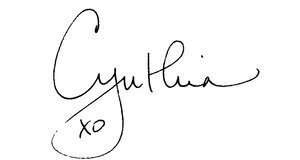Undoing
On getting a black belt in “rest”
“I do not summon you to slothful or idle inaction, or to drown all your native energy in slumbers and the pleasures that are dear to the crowd. That is not to rest.” Seneca 4 BC – AD 65
I’m being pointedly advised by various healers of the benefit of improving my relationship to “rest.” I didn’t have a clue what they meant, other than sleeping more and doing less. I take the occasional nap, and then zip-zap into delightful projects to make up the lost time. If I’m sleeping enough, what is showing up in my pulses and vitals that causes my health care team to be concerned? This is my quest.
My only model for rest is my cat, or any cat. Masters of doing absolutely nothing, and wildly respected for it. I delight in the story of Muhammad awakening one day to the sounds of the adhan, the call to prayer. He began to dress himself, and discovered his cat Muezza sleeping on the sleeve of his prayer robe. Rather than wake her, he used scissors to cut the sleeve, leaving the cat undisturbed. A mirror to our family rule of, “I can’t get up, I have a cat on my lap.” What if I could treasure my own time and inclinations in the art of doing nothing as much as a cat’s. No question mark, it’s rhetorical.
I was not raised to consider stopping to be a virtue. Most of us weren’t. It feels like “slothing.” A friend asked me about the ferocity of my pause-phobia. I shocked both of us by saying it felt somehow “evil,” as in the opposite of “live.” I’m glad she asked, and that I could answer from such a deep source. Because I don’t really believe that resting is evil, it’s just not something I’m good at, and my ego bristles at anything in that category.
There are signs in most 12-Step rooms that ask, “Are you a human being or a human doing?” I always proudly pointed to the 2nd, because I knew the right answer from a lifetime of training by productivity geeks. This was before I’d learned how inefficient Multi-Tasking is, a style I was steeped in as a child. My mom would watch my dad flailing in the garden, describing this style “like he’s killing snakes.” All the while she was canning and cleaning and talking on a phone still hooked to the wall.
Another spiritual injunction is “Let go and let God.” I want to proffer the co-dependents’ version, “Let go and let others.” But, what does one actually Let Go? My morning routine is honed to perfection, bringing intellectual, physical, and spiritual blessings that give me what I need for my day (I won’t bore you). Work is necessary and a source of major joy. My creative time is ever more precious, and thank you for sharing some of it with me. Cleaning—and connecting with others—are essential to a good life. If every activity in my life sustains me, where does rest fit in? This is a real question, and I’m opening my mind/heart to examples.
A couple decades ago, a beloved crone told me about her neighbor, a Viet Nam vet who suffered from PTSD. He didn’t like crowds, social contact was kept to a minimum, and was careful to avoid frustration. She described his style of working in his garden. “He would weed for a while, filling the wheelbarrow, then sit for a few minutes. He’d do another task, taking time to study the results. And thus, he moved gracefully from one task to the next.” This is easier to imagine when we all smoked cigarettes.
I have recently learned that there is brilliance in totally completing a task, and relaxing for a bit, letting it sink in. The pause generates a spark of new focus and energy. This doesn’t happen when you do parts and pieces of tasks, alternating between them and perhaps not quite finishing. And it hit me: Cats don’t multi-task! Nor do they “drown all their native energy” in screen time. They are not constantly idling. When they work, they are intensely focused, unmoving at a rodent hole for an hour. Play? Frolicking in a flow state, imagining a piece of paper into a wild enemy. Pleasure? Positioning themselves for a rub, purring, fully engaged in the oxytocin and entitlement of being tended to by those who worship them. Cat naps are their recharging time.
Perhaps this feline form of uni-tasking might be what Seneca meant as rest: an even, gentle tempo in a series of activities, punctuated with mini-breaks to allow for mindful completion. And then to recognize the benefits of taking bigger pauses: hours, days, even weeks, as the secret to sustaining a healthy body/brain. I’ll start following the lead of my cat. Tomorrow. Right now, I’m finishing this piece and juggling appointments for the start of the new year.
“If you get tired, learn to rest, not to quit.” Banksy
Oh, and happy restful and yet somehow productive New Year’s wishes to you!
Click here to purchase my book, The Courage to Trust.
Click here to purchase the audiobook of The Courage to Trust.
Click here to purchase my 90-minute guided visualization, Embracing True Prosperity.

